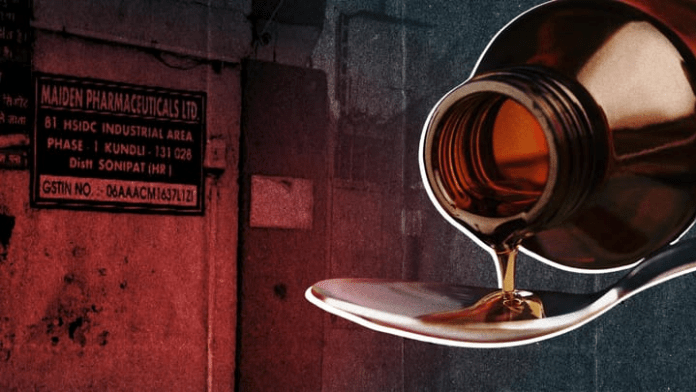The United States’s (US) leading public health agency, the Centers for Disease Control and Prevention (CDC), on Friday said that they found strong evidence to suggest that child deaths that took place in Gambia are linked to the consumption of Indian-made cough syrups.
It claimed that India-based Maiden Pharmaceuticals Ltd might have allegedly substituted pharmaceutical-grade solvents in the syrup with deadly Diethylene Glycol (DEG).
Nearly 70 children, mostly under the age of five, reportedly died in Gambia within days of being administered an Indian-made paracetamol syrup last year.
Gambian doctors raised an alarm, and subsequently, an investigation was opened.
The Gambian health ministry also issued an advisory in September 2022, a month after the deaths of at least 28 children from kidney failure.
The CDC report strongly suggests that made-in-India medications contaminated with Diethylene Glycol (DEG) imported into the Gambia led to this Acute Kidney Injury (AKI) cluster among children.
“Patients with DEG poisoning can experience symptoms like altered mental status, headache, and gastrointestinal symptoms. However, the most consistent manifestation is AKI, characterised by oliguria (low urine output) or anuria, progressing over 1-3 days to renal failure.”
The report said the contaminated syrup linked to AKI-related deaths might have entered the Gambia market by taking advantage of lenient regulations and checks in the low-income country.
It further said medications for export might be subject to less rigorous regulatory standards than those for domestic use, and low-resource countries might not have the human and financial resources to monitor and test imported drugs.
The CDC report was prepared after a joint probe by the US agency and the Ministry of Health (MoH) Gambia after the latter approached CDC to assist in an investigation.
The aim was to characterise the illness following multiple cases of Acute Kidney Injury (AKI) and deaths in children, describe the epidemiology, and identify potential causal factors and their sources in August last year.



